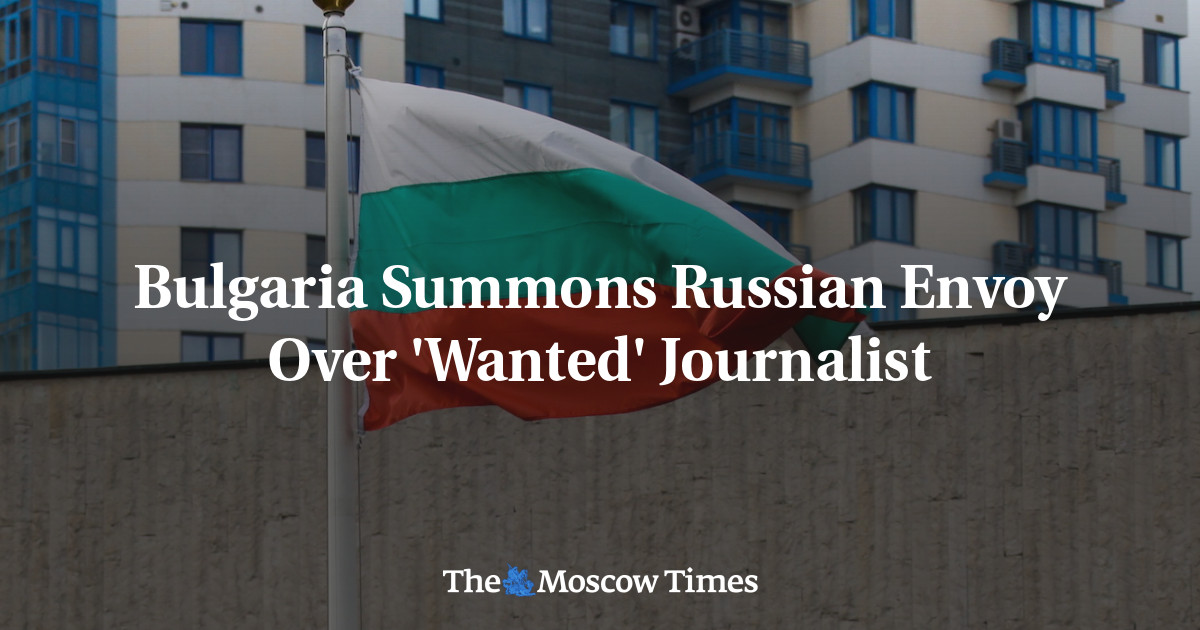
Bulgaria on Thursday summoned Russia’s ambassador “for explanations” after Moscow placed Bulgarian Christo Grozev, the executive director of the investigative website Bellingcat, on its list of wanted persons.
Bellingcat makes extensive use of open-source databases and online research tools and has won several awards.
It has run a series of investigations into what it says had been Russian involvement in a number of serious crimes, including attempted poisonings of critics.
A Russian interior ministry database said Grozev, who lives abroad, “is wanted for violation of an article of the Russian penal code.”
There was no further information in the statement, which was posted Monday.
After it began investigating Russia’s military operations in Ukraine, Moscow declared Bellingcat organization a “threat” that is “undesirable” on its territory.
Earlier Thursday, Bulgaria’s interim premier Galab Donev denounced the listing of the journalist as “an unacceptable attempt at intimidation.”
The Russian embassy replied that the listing was “not about intimidating the journalist or any threat to his life.”
Russian ambassador Eleonora Mitrofanova, speaking to journalists after her meeting at Bulgaria’s foreign ministry, said she had no information about the accusations against Grozev.
“The website of the Russian interior ministry never describes the specific charges against persons who are declared as wanted,” Mitrofanova said.
Grozev was only sought on Russian territory, and Bulgaria would have to seek more information directly from the Russian interior ministry, she added.
Grozev mocked her comments on Twitter after thanking the Bulgarian government for having stood up for him by “asking the Kremlin tough questions.”
The journalist, who keeps his whereabouts secret for security reasons, told Bulgarian Nova television earlier this week that he feared for his life.
Grozev said he had been offered help by several foreign countries, including Austria, where he has been living recently.
The office of the Bulgarian president also said it was in contact with Grozev and taking steps to ensure his protection.
Before Russia’s invasion of Ukraine, Bellingcat had already investigated the crash of flight MH17, which killed 298 people in eastern Ukraine in 2014, arguing that Russian-backed fighters were likely responsible.
It has run separate investigations alleging Russian intelligence involvement in the 2018 poisoning in the U.K. of the double agent Sergei Skripal and of the 2020 poisoning of Kremlin critic Alexei Navalny.